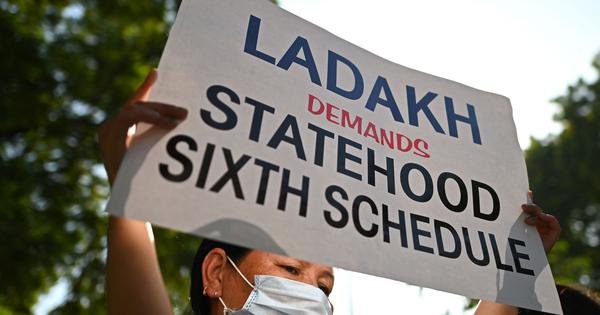Ladakh’s New Domicile and Job Policy: A Step Forward

The Indian government has introduced a new policy for Ladakh. This policy addresses local concerns about jobs and residency. It’s a response to protests and worries from Ladakh’s people.
A Partial Solution
Ladakhi leaders see this as a starting point. They appreciate the effort but say more needs to be done. Their main demands are still unmet.
Key Concerns
Chering Dorjay, a senior leader, explains: “We still want statehood for Ladakh. We also want Sixth Schedule status. These issues haven’t been discussed yet.”
The Sixth Schedule protects tribal areas and their rights. Over 97% of Ladakh’s population are tribal. The new policy doesn’t stop outsiders from buying land, which worries locals.
Understanding the New Policy
When Ladakh became a Union Territory in 2019, it lost special protections. Locals could no longer easily own property or get government jobs. By 2022, Ladakh’s leaders had four main demands:
- Statehood for Ladakh
- Protection under the Sixth Schedule
- Separate parliamentary seats for Leh and Kargil
- A separate Public Service Commission
The new policy addresses some of these demands. To be a domicile, one must have lived in Ladakh for 15 years since 2019 or studied there for seven years. This is only for government jobs.
The policy also reserves 85% of jobs and educational admissions for locals. This includes:
- 80% for Scheduled Tribes
- 4% for those near the Line of Control or Line of Actual Control
- 1% for Scheduled Castes
- 10% for Economically Weaker Sections
The Land Issue
The new policy doesn’t address land ownership concerns. Outsiders can still buy land in Ladakh. This is a major worry for locals. The policy only covers job eligibility, not land rights.
Ladakhi leaders accepted the policy to address the jobs crisis. They hope it will lead to more job opportunities for locals. But they are clear: if the policy affects land rights, they won’t accept it.
Comparing J&K and Ladakh
Some believe Ladakh got a better deal than Jammu and Kashmir. Both became Union Territories in 2019. But Jammu and Kashmir’s domicile rules are more lenient.
In Jammu and Kashmir, anyone living there for 15 years until 2020 could be a domicile. This means many non-natives have already become part of the population. In Ladakh, new domiciles will only come after 2034.
Looking Ahead
The Centre has also made English, Hindi, Urdu, Bhoti, and Purgi official languages. It has reserved one-third of council seats for women. But Ladakhi leaders say these weren’t their main demands.
They want overall protection and security for Ladakh’s people. The next meeting with the Centre will discuss statehood and Sixth Schedule status. Ladakhi leaders won’t back down on these demands.



